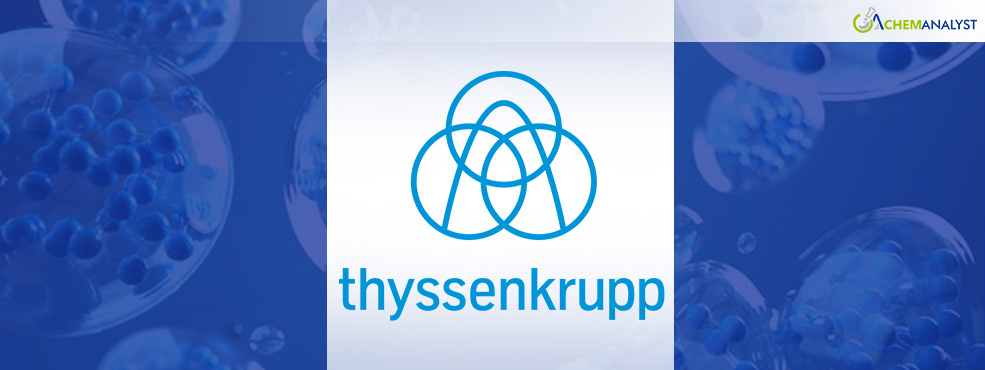Welcome To ChemAnalyst

Thyssenkrupp, Germany’s largest steel producer, is moving forward with a €3 billion green steel plant in Duisburg, which will operate even if the country’s hydrogen plans face setbacks. The German government has been heavily investing in hydrogen as a core element of its strategy to decarbonize heavy industries, including steel production. However, delays and uncertainties around the economics and regulatory framework for hydrogen have raised concerns, particularly for steelmakers dependent on this technology for emissions reduction.
Thyssenkrupp’s green steel plant is designed with flexibility in mind. While hydrogen will play a crucial role in decarbonization, the plant will not rely exclusively on it. The facility will also be capable of operating with natural gas, which could already cut CO2 emissions by 50% compared to traditional blast furnaces. The plant is expected to be nearly carbon-neutral if it runs entirely on green hydrogen, which is produced using renewable energy sources.
The company has set ambitious climate goals, aiming for carbon-neutral steel production by 2045. As part of its interim goals, Thyssenkrupp targets a 30% reduction in emissions from steel production and processes by 2030, using 2018 levels as a baseline. This green steel plant is a crucial part of that vision, integrating advanced technologies and production methods to achieve significant emission reductions.
One key feature of the plant is the replacement of an existing blast furnace with a modern electric arc furnace. The electric arc furnace will use electricity, potentially sourced from renewable energy, to melt steel scrap and produce new steel. This is seen as an essential step in the company’s broader steel transformation journey. Central to this transition will be the addition of a hydrogen-powered direct reduction plant, which will work alongside two electric melters. Thyssenkrupp expects to commission the direct reduction plant by 2027, marking a milestone in its decarbonization efforts.
Thyssenkrupp's strategy is designed to balance innovation with the preservation of existing processes and infrastructure, ensuring that it can continue meeting market demand while adhering to stringent climate goals. The plant’s flexibility in energy sources is seen as a strategic move to safeguard against future uncertainties surrounding hydrogen availability, enabling the company to maintain momentum toward a sustainable and carbon-neutral future.
In conclusion, Thyssenkrupp’s green steel plant represents a major step in the company's commitment to sustainability, aligning with Germany's broader industrial decarbonization efforts while securing a future-proof strategy for steel production.
We use cookies to deliver the best possible experience on our website. To learn more, visit our Privacy Policy. By continuing to use this site or by closing this box, you consent to our use of cookies. More info.
